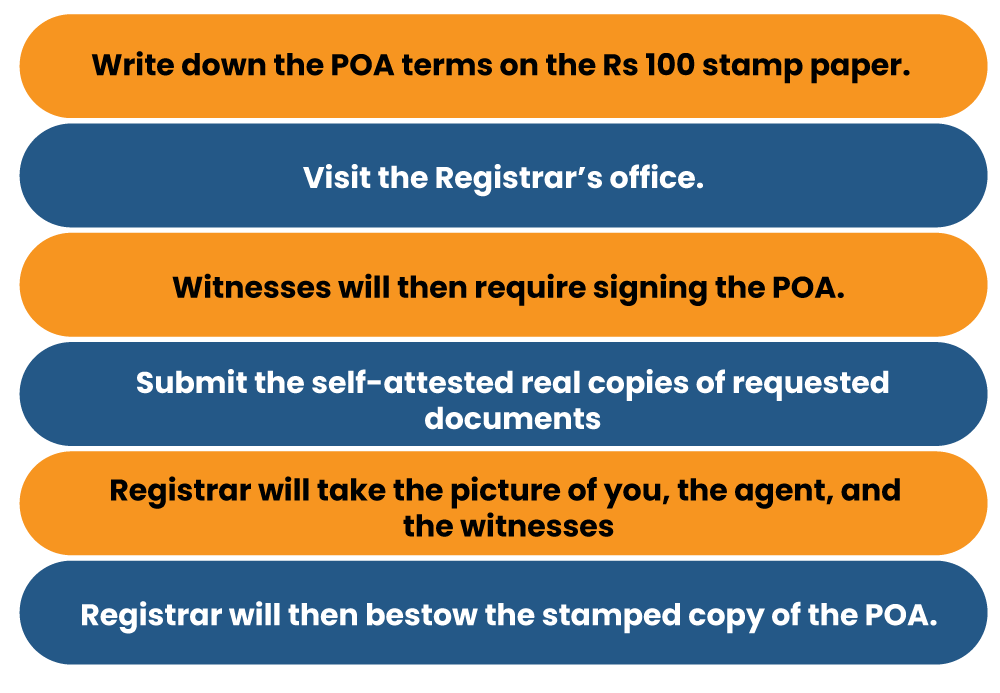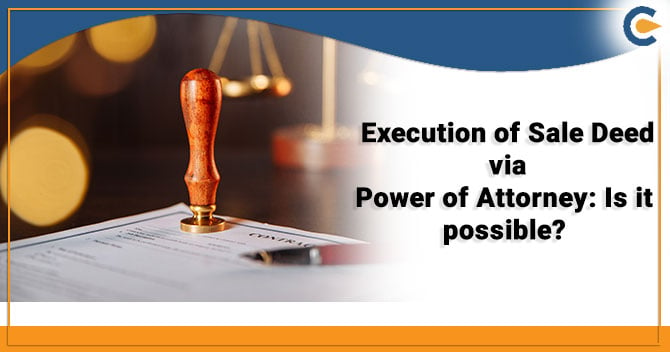There is a lot of skepticism among the people when it comes to the role of power of attorney in the execution of a Sale Deed. If you one of those who are confronting the same issue then this blog is for you. In this write-up, we will clear all the prominent FAQs linked with the property selling via General power of Attorney.
In 2011, the Apex court of India, i.e. Supreme Court invalidates the process of transferring property title via GPA. Before we unveiled this matter in brief and reveal the illegality related to the same, let us understand the fundamental of the General Power of Attorney.
What do you mean by Power Of Attorney?
A written document in which one individual (recognized as the principal) appoints another individual to act on his/her behalf to perform certain legal errands. Legally, the latter one is also known as an agent entrusted with the responsibility conferred by the former to carries predetermined tasks.
Power of Attorney is often conferred to permit the agent to undertake different functions on the behalf of the principal, such as;
- Overseeing the tax audit
- Executing a stock power
- Maintaining a safe deposit box.
The legality entrusted within the POA dissolves in the case where
- The principal is no more.
- The principal becomes incompetent irrespective of any reason.
Remember, the principal has the vested right to revoke the POA anytime.
Read our article:An Outlook on the Essential Sale Deed Components for Property Transfer
Steps involved in the Registration of Power of Attorney


- Write down the POA terms on the Rs 100 stamp paper. At this stage, the POA is recognized as a simple Power of Attorney.
- Visit the Registrar’s office (widely known as the office of sub-registrar) situated in your respective jurisdiction.
- Next, the office of the registrar would seek the inclusion of witnesses’ signatures on the POA. Remember, you would require arranging a minimum of two witnesses to serve this purpose.
- Next, submit the self-attested real copies of address proof, passport[1], Voter ID, Aadhaar Card along with the Xerox of the same.
- The registrar will take the picture of you, the agent, and the witnesses for the records.
- The registrar will keep the Xerox of POA in records and render one to you enclosing his/her office registry stamp. At this phase, your simple POA will become the Registered Power of Attorney.
Role of Power of Attorney in the Real Estate sector
It is evident from the above that the Power of Attorney is not a valid legal instrument for property title transfer in India. But despite this legal constraint, it is widely used across Indian cities for property title transfer because it entails monetary benefits for both seller and the buyer.
- In legal parlance, a sale deed is generally used to serve such a purpose. Anyone who is seeking property transfer can execute the sale deed and then pay the stamp duty & registration charges as applicable. For sale deed execution, a seller is also entitled to pay the capital gains tax for the given transaction. It is needless to mention that these charges do not apply to someone who opts for POA instead of a sale deed.
- From the seller’s viewpoint, a General Power of Attorney makes a successful transaction even if they lack clear property titles. Conversely, the transaction via a sale deed is only possible when the seller has a clear property title.
- Meanwhile, from the buyer’s viewpoint, they can purchase property at affordable rates compared to market price. It implies that affordability is another important parameter that entices many to opt for the general Power of Attorney rather than a sale deed.
- From a legal viewpoint, it is not possible for someone to sell the agricultural land for residential purposes without addressing the legal formalities of conversion. However, that’s not the case with the Power of Attorney. People can use it to serve such a purpose without hassling with aforesaid obligations.
- There are other legal hassles that encourage people to leverage General Power Attorney for a property transaction. The housing schemes such as DDA, MHADA, etc,
- The units allotted by the housing schemes such as DDA, MHADA usually come with a specified gestation period, before which the owner cannot sell his/her property. But, power of attorney can avert such complications. It allows the owner to transfer the unit without considering a gestation period. It is also perceived as a medium to investment in real estate.
- In some scenarios, family members bestow property rights via General Power of Attorney. In many events, newbie homebuyers often fall into the trap of fraudulent schemes in properties owing to their inexperience on the legal front.
An overview on Supreme Court Judgement Released in 2011
According to the judgment” A power of attorney is not a legal instrument in relation to the right, title or interest in immovable property”. The apex court ordered municipal institutions not to mutate/register properties via POA. The Supreme Court, however, validates the applicability of the General Power of Attorney if the transaction is legitimate.
The Court further ensures that nothing will discourage the affected parties from completing their title via registered deeds. The said transactions shall stand legal and permits parties to defend possession in case of conflict under Section 53A of the Transfer of Property Act,”
Many states, after the promulgation of the order, forbid the registration of property via General Power of Attorney. After levying a comprehensive ban on registration of said properties in 2012, the Delhi government permitted registration in favor of sons, spouses, siblings, and any other relative of the registered owner.
Conclusion
It is apparent from the above information that the power of attorney is not a legal instrument for the property’s transaction in India and it has been confirmed after the Supreme Court order. However, in the case of a legitimate transaction, the legal existence of POA will remain intact. The Supreme Court’s judgment aimed to curb the invalid transaction by making the overall process more lucid than ever.
Read our article:Sale Deed Format: Know the Process of Drafting a Sale Deed in India











